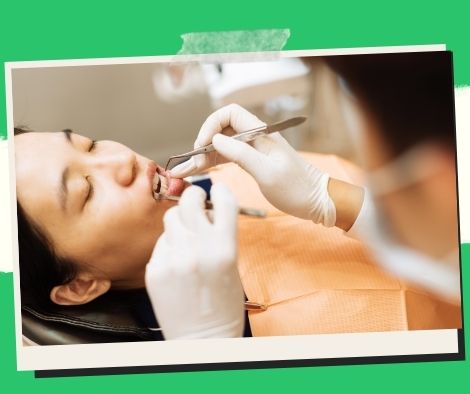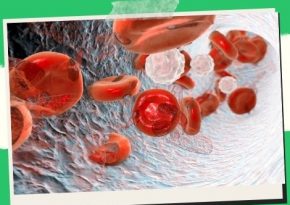
Adolescent Periodontal Disease
The word “periodontal” literally means “around the tooth.” Periodontal diseases, also known as gum diseases, are serious infections caused by bacteria that harm the gums and tissues around the mouth. While dental caries affect only the tooth, periodontal disease affects the bone that surrounds the tooth, the gums, the coverings of the teeth root, and the tooth membrane. Periodontists are doctors who specialize in the treatment of periodontal disease.
The disease is not to be taken lightly, and if left untreated, it can spread and affect the bones beneath the teeth, causing them to dissolve and no longer support the teeth. In seventy percent of cases, the chronic form of the disease causes tooth loss, and seventy-five percent of people will experience tooth loss at some point in their lives.
The causes of periodontal disease are similar to those of any other oral disease, in that plaque buildup and bacteria are to blame. Plaque buildup is the leading cause of gum disease, according to statistics. Other possible causes of periodontal disease include genetics, poor oral hygiene, food becoming stuck in the gums frequently, mouth breathing, a low-nutrient or vitamin-C-deficient diet, smoking, diabetes, autoimmune/systemic disease, changes in hormone levels, certain medications, and teeth grinding.
According to statistics, nearly 66% of young adults have periodontal disease, and nearly 50% of teenagers have periodontal disease. It is also the most common cause of tooth loss in adults. What are the signs and symptoms of periodontal disease, though? Swollen, tender, and red gums; bleeding while brushing or flossing the teeth is also a symptom of periodontal disease; receding gums; constant odorous breath; loose teeth; dentures that don’t fit any longer; change in the jaw and bite alignment are some of the symptoms that can vary from one adolescent to the next. The symptoms of the disease may be similar to those of other medical conditions, so seeking medical advice is the best option.
A dentist or periodontist can diagnose periodontal disease after reviewing the teenager’s medical history and performing a physical examination of the mouth. To assess the disease, an x-ray of the teeth is usually taken. Periodontal disease is divided into different types depending on where it is in its progression. “Gingivitis” is the mildest form of gum disease, in which the gums become swollen, red, and tender, resulting in bleeding during daily brushing and flossing. Gingivitis is divided into four categories: acute, sub-acute, recurrent, and chronic gingivitis. Acute gingivitis is a type of gingivitis that appears suddenly, lasts for a short time, and can be painful. Gingivitis that is sub-acute is a milder form of gingivitis. Gingivitis that recurs after treatment is known as recurrent gingivitis. Chronic gingivitis is a type of gingivitis that develops slowly, lasts a long time, and is usually painless. Gingivitis can be easily resolved with the help of a dentist and proper, ongoing care, but if left untreated, periodontitis can develop.
Periodontitis is further divided into mild, moderate, and advanced stages. Untreated gingivitis leads to periodontitis. The deterioration of the bone around the tooth becomes visible at this stage. The most common symptoms are bleeding red gums, a bad taste in the mouth, loose teeth, and tooth loss. To control the disease and prevent further deterioration, proper treatment is required. Periodontitis in its moderate to advanced stages manifests itself as significant tissue and bone loss around the teeth.
Periodontal disease can be treated in a variety of ways, which the dentist will determine based on the teen’s age, medical history, and overall health. The treatment method is also determined by the severity of the disease. The teenager’s tolerance for certain medicines, therapies, and procedures is also taken into account. The parents’ or teenagers’ expectations and opinions are also factors in determining the type of treatment. Plaque removal, medication, and, in the worst-case scenario, surgery are usually used to treat the condition.
Save/Share this story with QR CODE
Disclaimer
This article is for informational purposes only and does not constitute endorsement of any specific technologies or methodologies and financial advice or endorsement of any specific products or services.
📩 Need to get in touch?
📩 Feel free to Contact NextGenDay.com for comments, suggestions, reviews, or anything else.
We appreciate your reading. 😊Simple Ways To Say Thanks & Support Us:
1.) ❤️GIVE A TIP. Send a small donation thru Paypal😊❤️
Your DONATION will be used to fund and maintain NEXTGENDAY.com
Subscribers in the Philippines can make donations to mobile number 0917 906 3081, thru GCash.
3.) 🛒 BUY or SIGN UP to our AFFILIATE PARTNERS.
4.) 👍 Give this news article a THUMBS UP, and Leave a Comment (at Least Five Words).
AFFILIATE PARTNERS

World Class Nutritional Supplements - Buy Highest Quality Products, Purest Most Healthy Ingredients, Direct to your Door! Up to 90% OFF.
Join LiveGood Today - A company created to satisfy the world's most demanding leaders and entrepreneurs, with the best compensation plan today.



 Business Technology, Finance Technology & Information Technology
Business Technology, Finance Technology & Information Technology





